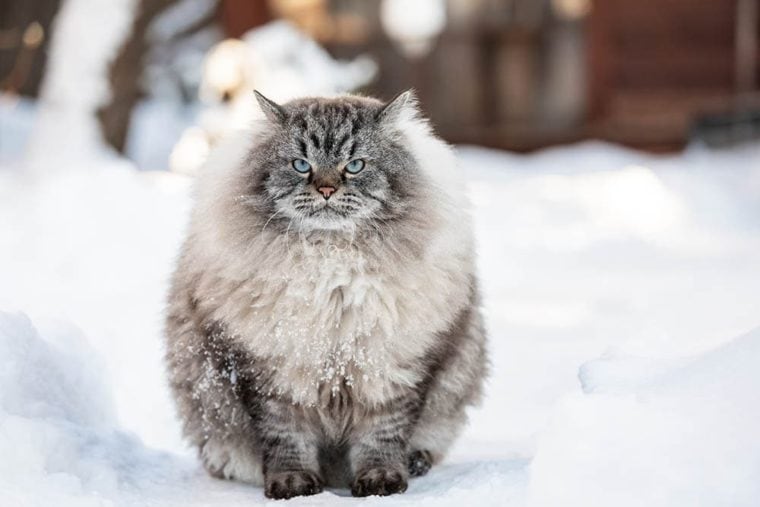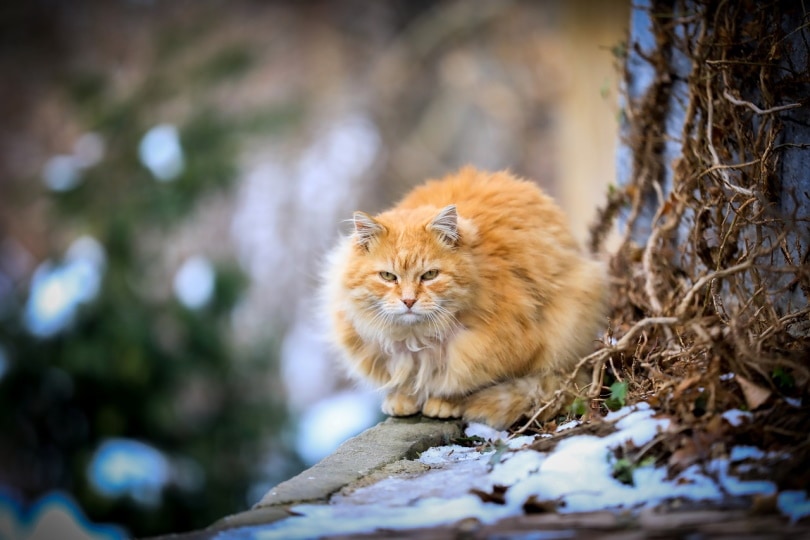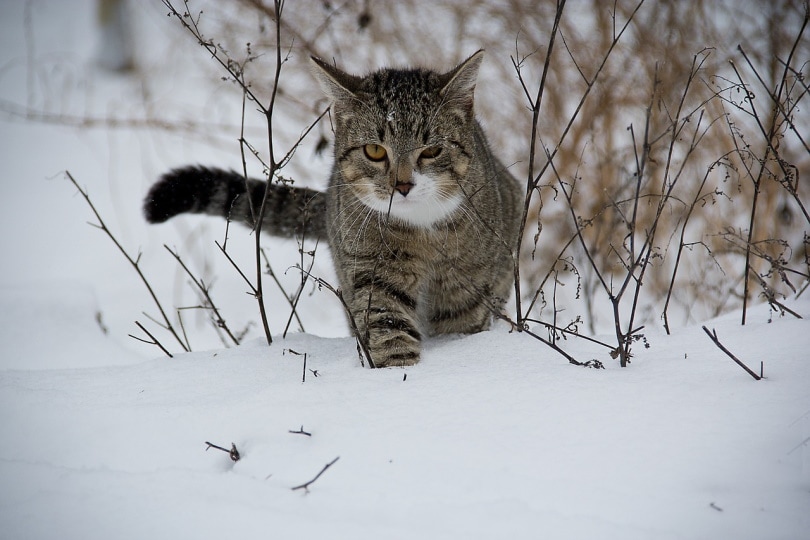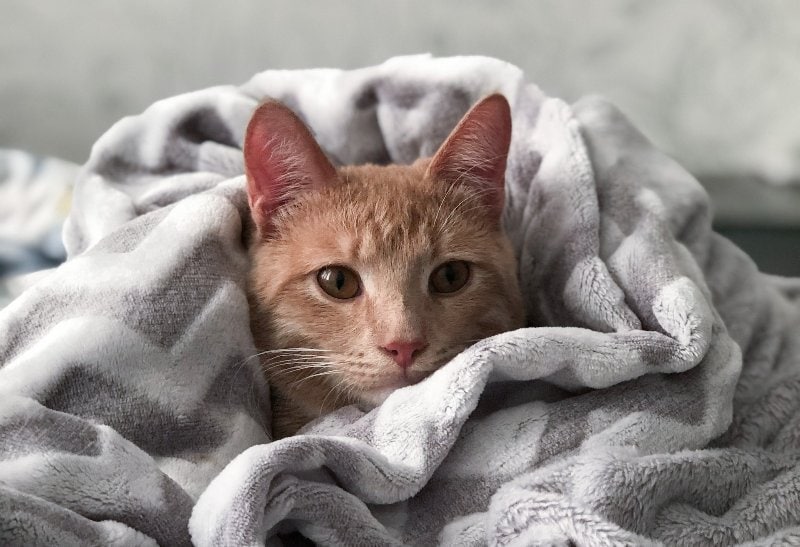
Although there are exceptions, cats do not usually like snow. However, some are equipped to deal with at least some snow and are able to protect themselves against the cold temperatures and the wet precipitation.
There are also breeds of cats that are certainly better equipped than others. The Siberian cat is adapted to living in freezing cold Siberia where snow is on the ground for approximately 6 months of the year. Other breeds that are well equipped to deal with the white stuff include the American Bobtail, British Shorthair, and the Scottish Fold. In contrast, breeds like the Siamese and Abyssinian have short coats and no undercoat, so they are ill-equipped to deal with the cold temperatures that accompany snow.
Whatever breed of cat you have or are considering, though, there are steps that you can take that still allow you to have the breed of your dreams, even if you live in an especially snowy part of the world.
Read on for more information on cats and their relationship with snow and cold climates.
Indoor Cats and Snow
Indoor cats have become accustomed to the warm and dry conditions of living indoors. Even those with three layers of fur that descend from wild cats in snowy mountains will be used to having shelter from inclement weather conditions.
Most indoor cats have very little reason to have to head outdoors because they get their food and water inside and have adequate protection from snow and rain. You shouldn’t force your cat out in the snow, but if yours enjoys playing in drifts, it should be safe to let them have some fun outdoors, under your supervision.
Outdoor Cats and Snow
Outdoor cats, or those that live indoors but are given the freedom to roam outdoors, may be less inclined to stay indoors throughout winter. They will have territory that they need to manage, and this doesn’t change just because that territory is covered in snow. They will also have a good idea of where they can go to enjoy protection from bad weather, whether it be a shed, garage, or somebody else’s house.
With that said, you may notice your outdoor cat venturing outdoors less often and spending less time outside the confines of your home.

Feral Cats
Feral cats do not have a home to speak of. They tend to live in the wild or, at best, in barns or other makeshift shelters. They will be used to cold conditions, and they will have a territory that includes warmer and covered areas. They will also be physically conditioned to cope with the cold snow, although really extreme conditions may cause even the hardiest of feral felines to look for extra shelter.
Cats Are Individuals
While it is true that most cats dislike snow because it is wet, cats are individuals. Yours may love playing in the snow and avoid going out in the heat of summer. It just depends on the cat. If your cat does enjoy the snow, there is no reason to let the weather stop them from going out.

How to Protect Your Cat From the Snow
If you are concerned about your cat being out in the snow, there are steps you can take to keep them safe.
Hypothermia in Cats
If you notice the cat is shivering, this is a sign that you should bring them in, dry them, and warm them before they get too cold and risk hypothermia. A warm towel, a blanket, a snuggle, or even a bottle of warm water covered with a towel can help. Just make sure it is only warm and not hot. If it’s too hot for you to keep your hand on, then it is also too hot for the cat. You do not want to take the risk of injuring the cat.

Conclusion
Although most cats would prefer to stay in when the temperature gets too low, and especially when there is a risk of them getting wet, some cats love the snow. Unless the temperature is especially low, it should be safe to let your cat have some time outdoors in snowy conditions. However, do check that they have some sort of shelter or that they have easy access back into the house if things do get a little too cold.
Featured Image Credit: Dmitry Naumov, Shutterstock








